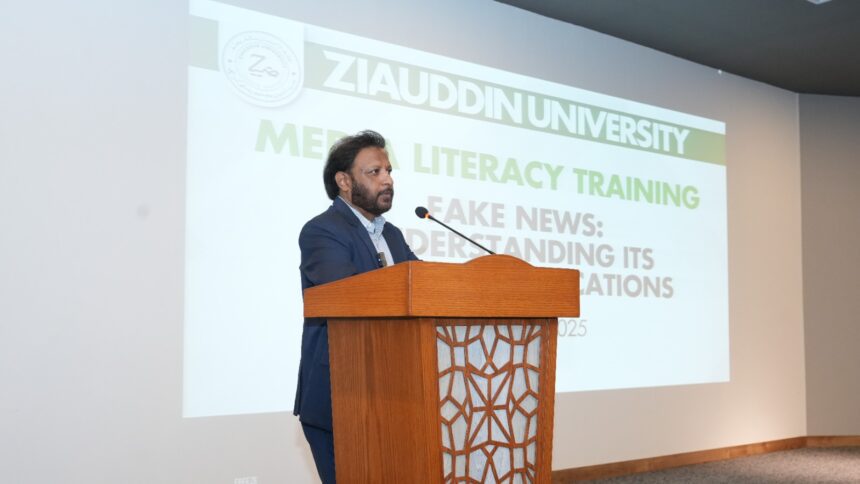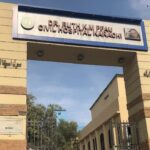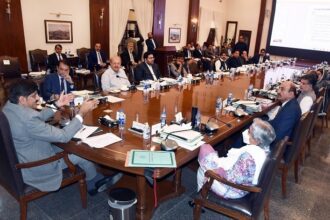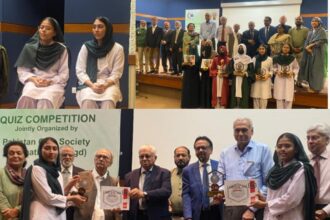Ziauddin University held an HEC-mandated media literacy training titled “Fake News: Understanding its Impact and Implications” to educate students and faculty on identifying fake news and promoting ethical media consumption.
The session aimed to equip participants with critical thinking skills to detect misinformation, understand its societal risks, and encourage responsible digital behavior. A strong focus was placed on the role individuals and institutions play in preventing the spread of false information online.
Rafat Saeed, senior journalist from Germany-based broadcaster Deutsche Welle (DW), warned students about the dangers of casual social media engagement. He highlighted that even liking or sharing unverified posts could result in legal or reputational harm under Pakistan’s Prevention of Electronic Crimes Act (PECA). He called for more awareness workshops to help the public assess source credibility.
Senior journalist Faheem Siddiqui elaborated on how misinformation escalates into disinformation, causing societal chaos and division. He stressed that while legal frameworks exist to monitor cybercrimes, the rapid pace of social media sharing has heightened the vulnerability of individuals and communities.
Amir Shahzad, Head of PR & Communications at Ziauddin University, underscored the collective responsibility to combat fake news, emphasizing that its consequences extend beyond individuals to threaten society and national stability.
In closing remarks, Dr. Sumaira Khowaja Punjwani, Principal of the College of Nursing and Midwifery, thanked the speakers and urged participants to take proactive steps in stopping misinformation. She called it a civic duty to protect one another and society at large.
The event attracted a large audience of students, faculty, and management, ending with a lively question-and-answer session where students deepened their understanding of the challenges posed by fake news.














